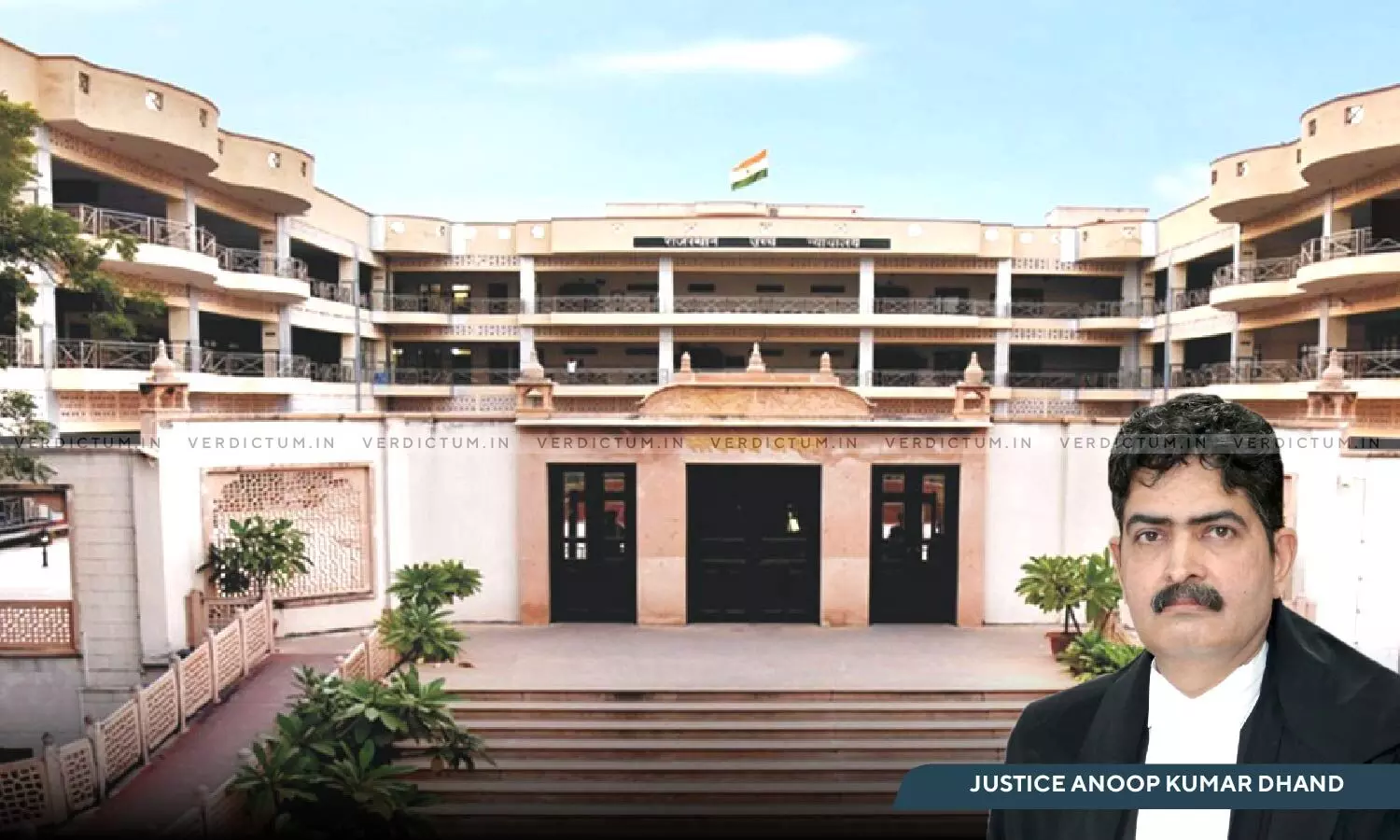
State Authorities Should Itself Extend Benefit Of Judgment-In-Rem To Similarly Situated Persons Instead Of Forcing Them To Get Similar Orders From Court: Rajasthan HC
 |
|The Rajasthan High Court observed that the state authorities should itself extend the benefit of judgment-in-rem to similarly situated persons instead of forcing them to obtain similar orders from Court.
The Court, while dealing with a batch of civil writ petitions seeking directions to remove the vehicles of petitioners from blacklisting, remarked that “Justice is not a saleable commodity”.
A Single Bench of Justice Anoop Kumar Dhand held, “Justice is not a saleable commodity. The State Authorities cannot be allowed to compel the aggrieved persons to approach the Court of Law and get the same order. Once a issue has been decided by the Court of Law and the same has not been challenged by the State Authorities before any Appellate Court and thus, it attained finality, then the State Authorities are bound by the same. The State should not unnecessarily compel the aggrieved persons to knock the doors of the Court again and again for getting a similar order. The “doctrine of finality of judgment” is applicable in such matters.”
"When the judgment pronounced by a Court is a judgment-in-rem with an intention to give its benefit to all the similarly situated persons whether they have approached the Court or not, an obligation lies on the part of the authorities to itself extend the benefit thereof to all the similarly situated persons", the court added.
The Bench said that denying similar benefits to the similarly placed persons on the touchstone of what has already been granted to a particular set of persons would tantamount to discrimination and violation of Articles 14 and 16 of the Constitution.
Advocate Kan Singh Rathore represented the petitioners while AAG S.S. Naruka represented the respondents.
In this case, common questions of law and facts were involved in the petitions and hence the matters were taken up together for final disposal by the High Court. The petitioners challenged the action of the respondents/authorities by which their vehicles were blacklisted and were flagged as NTBT (Not To Be Transacted). They also assailed the action of the respondents by which penalty was imposed upon them for the alleged overloading in their vehicles.
The High Court in the above context noted, “The normal rule is that when a set of persons is given a relief by the Court, all other identically situated persons need to be treated alike by extending that benefit. Not doing so would amount to discrimination and would be violative of Article 14 of the Constitution of India.”
The Court observed that when a judgment is pronounced by the court, affecting the rights of public at large, then the said judgment should be treated as a judgment in rem with intention to give benefit to all the similarly situated persons, whether they approached the Court or not.
“With such a pronouncement, the obligation is casted upon the authorities to itself extend the benefit thereof to all the similarly situated persons. The judgment passed by this Court in the case of Zabir Khan (supra) can be treated as a judgment in rem and not in personam henceforth. The respondents are directed to grant benefit of directions issued by this Court in the case of Zabir Khan (supra) to all the similarly situated aggrieved persons without compelling them to approach this Court again and again for getting the similar orders”, it added.
The Court further said that the respondents may issue a common circular /notice on their official website and put the same on the Public Notice Board of all the Offices of the Transport Department, intimating all the aggrieved persons to approach the respondent authorities for redressal of their grievance by way of filing appropriate representation and in case, any representation is submitted by any of the aggrieved persons, the respondents are expected to hear and decide the same within a period of three days.
“The District Transport Office (DTO), in all the Districts of the State of Rajasthan, be directed to redress the grievance of the aggrieved persons by deciding their representations within the stipulated period fixed by this Court, in the light of directions issued in the case of Zabir Khan (supra). … Disobedience of the Court orders strikes at the very root of the Rule of Law and the judicial orders are bound to be obeyed at all costs”, it ordered.
The Court also clarified that in case, any willful disobedience is made by the respondents in compliance of the orders/directions issued by the Court, then the same would be viewed seriously and would amount to contempt of the Court.
Accordingly, the High Court disposed of the petitions.
Cause Title- Naresh Singhal v. State of Rajasthan & Ors.
Appearance:
Petitioners: Advocates Kan Singh Rathore, Hanumant Singh, Anjani Kumar Sharma, Raj Kumar Goyal, Rajni Vyas, Iliyas Khan, Raj Kumar Saini, Aatish Jain, Ram Avtar Pareek, Mritunja Sharma, Surjeet Singh, Harshad Kapoor, Sunil Kumar Bansal, Shivatma Kumar Tank, Hemant Singh Shekhawat, and Sachin Kumar Mittal.
Respondents: AAG S.S. Naruka and Advocate S.S. Nirwan.